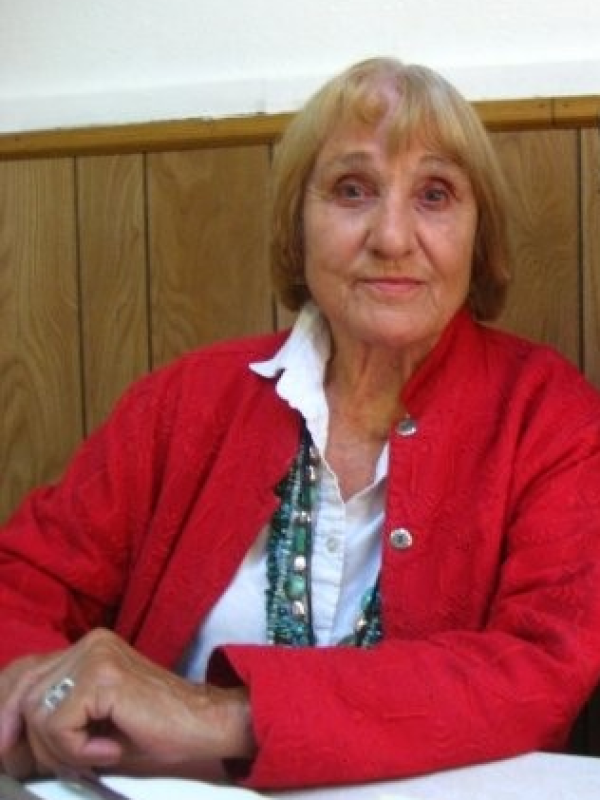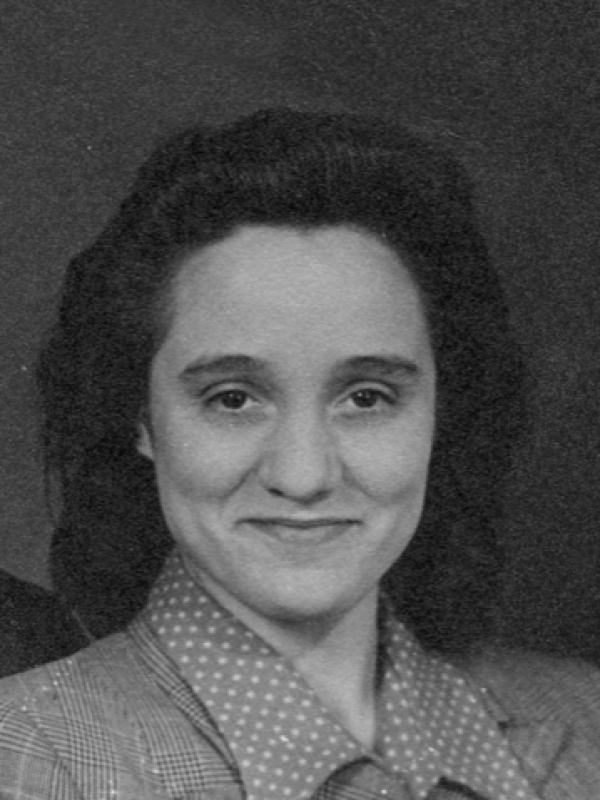Rita Shaw
Rita Shaw, who lived in Santa Barbara for over forty years, died June 11th at Vista Del Monte Retirement Community. She was 97, and less than a month away from her 98 th birthday. A fiercely independent spirit who lifted up everyone she knew with her generosity, Rita, as friends described her, was a “force of nature” with strong affection for those she loved. She cared passionately about her four children and spoke with them almost every day. Rita projected warmth and was always kind and respectful to the greatest and the least who crossed her path.
She was especially supportive of the disempowered. Rita loved the underdog. “Do something just for you,” she used to say. She may have seen us all as underdogs!
Conversations with Rita were often abbreviated. She didn’t like aimless chit chat. If you didn’t have something to talk about, she would say, “You have my permission to withdraw” or “Are we done now?” and this was as likely to happen in person as on the phone. But even when she expressed herself tersely, it was with sincerity and a light touch of mischievous humor. As she often said, “We’re all in this together,” and with Rita you felt it. She would always be there for you in your hour of need.
Rita was born in Leeds, England in 1922. Being a child in the north of England, where the great depression hit hardest, and her later experience of rationing during WWII, gave her a lifelong sense of frugality. In 1933 she moved to Devon, where she was encouraged to moderate her broad Yorkshire dialect to speak with a more socially acceptable accent. In 1939, at age 17, Rita was called to the Home Office to work as a secretary in London for the British Merchant Navy.
She was in London during the Blitz when her fellow Brits descended to the Underground every night for protection from the German massed bombing raids. The war experience left her with a deep appreciation of the courage and resilience of her countrymen. She embodied those traits herself throughout her life. Rita was incredibly resilient dealing with both physical and emotional pain. As a fellow countryman put it, “she combined a core of Yorkshire steel with a most profound humanity.” She never complained, preferring to light a candle rather than curse the darkness. Following the allied invasion of Italy, Rita was posted to Algeria where she met her future husband and the father of her children, Norman Shaw, a colonel in the U.S. Army.
After the war, Rita came to the U.S. and moved to her husband’s hometown, Lincoln, Nebraska, where she spent the next 25 years. Rita developed life-long friendships and grew to love the stark beauty of the prairie landscape and the Colorado Rockies where she vacationed with her family.
They twice travelled to Europe, with four small children, taking long trips in a VW microbus, traveling through the Pyrenees and finally settled for three months on the Balearic island of Ibiza. Eventually the marriage broke down and Rita joined the few courageous women of that generation who chose to get a divorce. She raised her four children alone, attended their sporting events and worked two, sometimes three jobs, to make ends meet. Rita believed in her own capabilities. She asked Cliff’s Notes’ if she could write the booklet for D.H. Lawrence’s, Sons and Lovers. “Only college graduates write those” was the answer. She replied, “Just try me.” She set up her typewriter in the middle of the living room amidst her children. Fifty-five years later, Cliff’s Notes’ Sons and Lovers is still in publication. Not bad for a girl who left school at 16.
She got into TV through her voluntary work with the Junior League, created a TV talk show, and then produced and hosted many successful programs with KOLN TV. Perhaps her most ground-breaking production was with penitentiary convicts, The Prisoner Speaks, where Rita interviewed prisoners with the same unsparing and generous attention she gave everyone else. For Rita, they were people first, prisoners second, and the program was a landmark in local TV.
At this time, she also supported a gay friend, prominent in the community, to overcome the cruel ostracism to which he was subjected.
In 1972 Rita married Al Rung, Vice President of Burlington Northern Railroad, and moved to Minnesota, where she was hired by KTCA, the PBS affiliate of the Twin Cities. Rita became a director of many successful TV programs, serving as on-air moderator for most of them. An admirer of her work at KTCA put it plainly, “Rita was a legend.” She made a difference. In 1980, Rita and Al (now retired), moved to Santa Barbara where her son had enrolled in graduate school at UCSB. Rita and Al started a business, Great Days, that sold commemorative scrolls of news events on the day people were born. The business took off, and they lived in an apartment overlooking Leadbetter Beach, where Rita continued to live after Al died. She loved having her apartment filled with her children and grandchildren each summer.
Although running a successful business demanded much of her energy, Rita still found time to serve on the S.B. Library Board, join Women Against Gun Violence, Hospice, The Monday Group, the Unitarian Church, and virtually any group that worked for equal rights and against violence. She was an avid movie goer, sometimes even demanding a refund if she deemed the movie was not worth seeing, and she got her refunds! Rita loved listening to people’s stories and asked irreverent questions with a twinkle in her eye. She could be trusted with one’s deepest secrets. She heard countless confessions and did not impose sanctimonious moralities on anyone. People felt they could safely tell Rita anything if they spoke with an authentic voice.
Rita loved to sing and could recite many of the Romantic poets by heart. She also loved to dance
and took lessons for years at Arthur Murray Dance Studio.
She took risks and loved to travel, often visiting her younger daughter in the mountains of northern New Hampshire, and her sons in Massachusetts. Rita made trips all over the world, visiting her daughter Leslie, including a week in Tripoli, Libya during the time of Gaddafi. She also visited Japan, Indonesia, Hong Kong, and spent time in Spain and Mexico in language immersion programs. She would sleep on a floor, put up with any kind of food in a restaurant, caring more about the working conditions of the servers.
After Rita lost her driver’s license in 2014, she moved to Vista Del Monte. She loved to be teased, playfully insulted, and loved to give it back. At VDM, Rita was involved in the ukulele group, Vista Voices, a play reading group and she loved to sit in the library reading the New York Times from where she would call us to talk about current events. She remained avidly interested in the world and recently reminded us all to “wear your mask.” Even in these last months, in conversations, Rita did not miss a thing.
Rita often used to say “When I’m dead, I don’t want a memorial service with people saying maudlin things about me, going on about how wonderful I was. Forget it. Just go out and have a good time. Live your life.” That is surely what Rita did. She lived her life with a full heart and adventurous spirit. Like her beloved Brits during the Blitz, she was tough, resolute, and humane.
She was a model for how to live. She will be never be forgotten by anyone who knew her, and she will be sorely missed. An English relative said, “Her inner humanity and compassion illuminated her entire being” and as someone at Vista Del Monte put it, “All human beings should be like Rita.”
Rita is survived by her daughter Leslie Corcos and husband, Robin, Gregory Shaw, Christie Shaw-Doran and husband, Ched, Cameron Shaw and wife, Carol, eight grandchildren and eleven great grandchildren.
Please make contributions to:
Assisted Home Health & Hospice Foundation
72 Moody Court, Suite 100
Thousand Oaks, CA 91360
(805) 379-3656
https://assistedcares.com/


